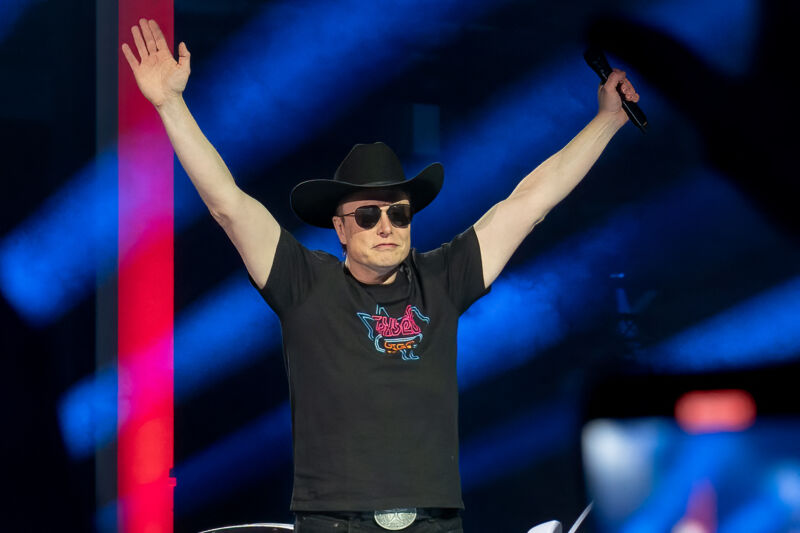
On Wednesday, Tesla CEO Elon Musk urged a judge to reject a request for a gag order that would prevent him from continuing to publicly claim that his infamous “Funding secured” tweet was accurate.
The motion for a temporary restraining order “asks this Court to trample on Elon Musk’s First Amendment rights by barring him from publicly discussing this case or its underlying facts. Plaintiff’s motion cannot be reconciled with the Constitution’s guarantee of free speech and should be denied,” Musk’s lawyer wrote in a court filing Wednesday.
Musk and Tesla face a class action lawsuit in US District Court for the Northern District of California over Musk’s August 2018 claim that he had secured funding to take Tesla private. Musk and Tesla previously agreed to pay $20 million each in penalties and impose controls on Musk’s social media statements to settle a lawsuit filed by the Securities and Exchange Commission, which said that “Musk’s misleading tweets” about taking Tesla private caused the stock price to jump “and led to significant market disruption.”
Plaintiff: Musk’s false claims “poison the jury pool”
Musk acknowledged that no financial deal had been completed, but he argued it was close enough to justify his claim that funding was “secured.” In a TED conference appearance last week, Musk again claimed that “funding was actually secured” and he called the SEC “bastards.”
After Musk’s TED appearance, the lead plaintiff in the class action suit sought a temporary restraining order to prohibit Musk “from speaking with the press, media, news, and other public outlets about this case or the underlying facts until the end of trial.”
“Musk’s extensive pretrial media interviews pose a clear danger and serious risk to a fair trial because they attract pretrial publicity, poison the jury pool, and influence the outcome on the eve of trial,” plaintiff Glen Littleton’s motion argued.
Littleton’s filing said the federal judge overseeing the case has already ruled that Musk’s tweets about taking Tesla private “were false and misleading and that Musk made these false statements recklessly and with full awareness of the facts that he misrepresented in his tweets.” That ruling by District Judge Edward Chen is still under seal.
“The truth of the August 7, 2018 tweets and Musk’s state of mind when publishing them are no longer issues to be decided by the jury. Therefore, Musk’s continuing public statements about these issues only serve to prejudice the jury pool in this case by potentially influencing their deliberations during trial,” the plaintiff’s filing said.
Musk blames media for “false insinuations”
Musk countered that “Both the Ninth Circuit and the Supreme Court have made clear that the extraordinary relief of a prior restraint on litigants’ speech is subject to strict scrutiny and permissible only where there is a clear and discernable danger that an entire community will be corrupted by pretrial publicity such that locating twelve objective jurors would be impossible. This is not one of those rare cases.”
Musk’s court filing defended his comments at the TED conference:
Mr. Musk is in the middle of a public offer to take Twitter private, an undertaking which has led to a debate concerning the improper censorship of speech. In that context, the media has made comparisons with Musk’s previous consideration of taking Tesla private. The recent conference Musk attended is a prime example. Chris Anderson of TED asked Mr. Musk if funding was secured for the Twitter deal, an obvious allusion to the events underlying this case. Mr. Musk should be permitted to respond meaningfully and truthfully to inquiries such as this, and not be compelled to remain silent about false insinuations in questions posed to him by the media. Plaintiff’s request for a gag order is not designed to limit certain narrow forms of speech to ensure a fair trial; it is instead designed to silence Mr. Musk’s statements outside the context of this litigation.
Musk’s filing also noted that he is trying to get out of the SEC settlement in a separate court case. Musk claims he was “coerced into signing” the deal with the SEC.
“That agreement involved the same allegations at issue in this case, and Mr. Musk undoubtedly will be called upon by the media and by his shareholders to speak about that ongoing dispute. Imposing a broad and unwarranted gag order in this case would prejudice Musk’s rights in connection with that proceeding as well,” Musk’s filing said.
No hearing has been scheduled on the motion for a restraining order, and it’s not clear when the judge will rule.
https://arstechnica.com/?p=1849507

